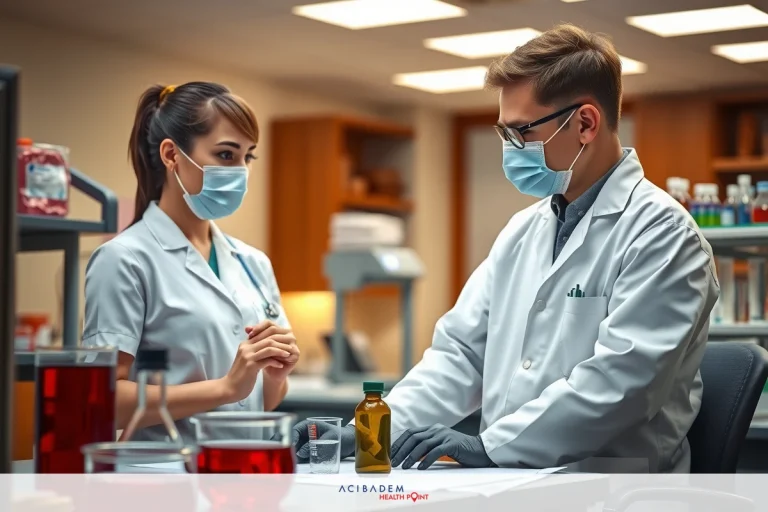How Long Does CAR T-Cell Therapy Take CAR T-cell therapy is a new way to treat some kinds of cancer. This treatment uses your own cells to fight the disease. First doctors take out some of your blood cells. These cells are then changed in a lab and put back into your body. Many people wonder how long this process takes from start to finish.
The time it takes for CAR T-cell therapy can vary for each person. It starts with a consultation and health check-up which may take a few days or weeks. Next, there is the step where they collect your blood cells, which usually happens in one day. After that lab work starts where they change these cells – this part can take several weeks.
Once the modified cells are ready you will get them back through an infusion that typically lasts just one day. Following this doctors monitor you closely for any side effects over several weeks or months. It’s best to ask your medical team about what to expect during each stage of the treatment journey.
What is CAR T-Cell Therapy
CAR T-cell therapy is a type of medical treatment for cancer. It uses your own blood cells to fight the disease. Doctors first collect these cells from your body. The collected cells are then changed in a lab to better attack cancer.
The process starts with removing some of your blood which contains T-cells. These cells are important for fighting infections and diseases. In the lab scientists modify them to target cancer more effectively. This modification can take several weeks before they are ready.
Once modified the new CAR T-cells are put back into your body through an infusion. This step usually happens in one day at a medical center. Afterward you will be closely watched by doctors for any side effects or complications.
The total time for CAR T-cell therapy varies but includes preparation and recovery time stages. The entire process may last several months from start to finish depending on each person’s case and health status. Always talk with your healthcare team about what you can expect during this treatment journey.
Initial Consultation And Assessment
The first step in CAR T-cell therapy is the initial consultation with your doctor. During this visit you will discuss your medical history and current health status. Your doctor will explain what CAR T-cell therapy involves and its potential benefits. This is also a great time to ask questions about treatment time and recovery.
Next a thorough health assessment takes place to ensure you are fit for the procedure. Blood tests, scans, and other checks are usually part of this process. These tests help doctors understand how well your body can handle the therapy duration. It’s important that any underlying issues are identified early.
Doctors use information from these assessments to create a tailored treatment plan for you. They consider factors like age, overall health, and specific cancer type when making decisions. The goal is to maximize the effectiveness of CAR T-cell therapy while minimizing risks.
Finally an informed consent form must be signed before moving forward with the medical procedure. This document ensures that you fully understand what lies ahead in terms of preparation steps and possible side effects during recovery time stages. Always feel free to discuss any concerns or doubts with your healthcare team at this stage.
Preparation And Collection Of T-Cells
Preparation for CAR T-cell therapy begins with a process called leukapheresis. This medical procedure collects your blood to isolate T-cells. During this step you will be connected to a machine that separates the needed cells from your blood. The remaining blood is then returned to your body.
The collection usually takes several hours but it’s painless and safe. You might feel a bit tired afterward so plan some rest time. Doctors often schedule this procedure early in the morning or afternoon making sure you are comfortable throughout.

Once collected the T-cells are sent to a lab for modification which is crucial for effective treatment. Here they undergo changes that allow them to better target cancer cells in your body. This lab work can take several weeks before the modified cells are ready for reinfusion into your system during later stages of CAR T-cell therapy.
Lab Work And Modification Of T-Cells
After the collection your T-cells are sent to a specialized lab for modification. This is a key step in CAR T- cell therapy. Scientists work to alter these cells so they can better target cancer cells. They use advanced techniques to make these changes.
The modification process involves adding special receptors to the T-cells. These receptors help them recognize and attack cancer cells more effectively. This part of the medical procedure can take several weeks due to its complexity. Each patient’s cells require personalized adjustments.
Engineers also test the modified T-cells multiple times during this phase. These tests ensure that the new CAR T-cells function as intended without causing harm. Quality control is vital here as any errors could affect treatment time and outcomes later on.
Once modified the engineered CAR T-cells undergo expansion in culture dishes or bioreactors. The goal is to produce enough cells for reinfusion into your body during therapy duration stages later on. This step helps amplify their potency when they are finally reintroduced.
Finally, after rigorous testing and quality checks, the modified CAR T-cells are frozen until needed for infusion back into you. This ensures they remain viable and effective by maintaining their integrity throughout recovery time periods before administration occurs.
Frequently Asked Questions
Q: How long does CAR T-cell therapy take from start to finish?
A: The entire process can take several months, including preparation, lab work, and recovery time.
Q: What are the main steps involved in CAR T-cell therapy?
A: Key steps include initial consultation, T- cell collection, lab modification, infusion of modified cells, and monitoring.
Q: Are there any side effects during or after CAR T-cell therapy?
A: Yes. Common side effects may include fever and fatigue. Always consult your doctor for specifics.








